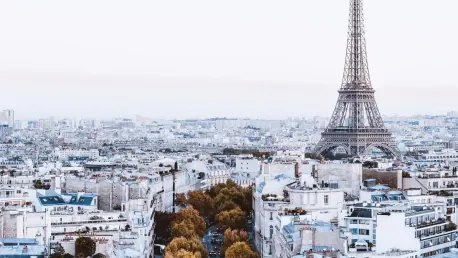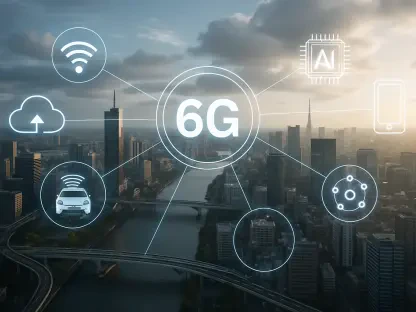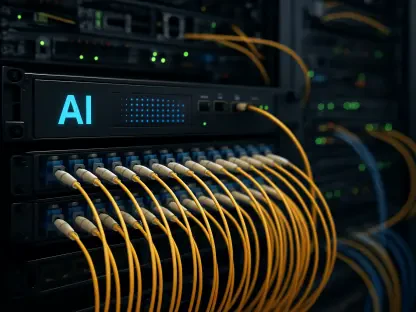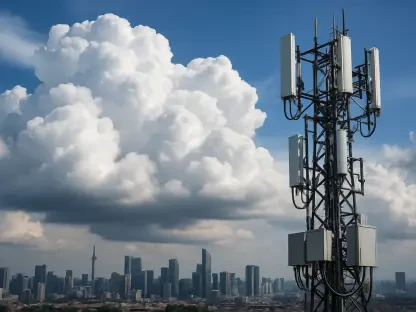As the City of Love and Lights prepares to host a surge of visitors for the 2024 Olympic and Paralympic Games, concerns are mounting about the security of public Wi-Fi networks in Paris. Kaspersky conducted an eye-opening study that revealed a significant percentage of these networks to be unsafe, casting a shadow on the otherwise enchanting cityscape. Out of 25,000 free Wi-Fi spots analyzed across Paris, nearly a quarter were found to be unsecured. In a time when connectivity is crucial, especially for tourists navigating unfamiliar terrain, these findings pose a serious cybersecurity threat.
Public Wi-Fi Vulnerabilities in Tourist Hotspots
Lack of Basic Security Features
Public Wi-Fi networks in Paris are often provided by local businesses or tourism boards to assist tourists in getting around the city. However, Kaspersky’s extensive research, which examined 47,891 signals from key landmarks such as the Arc de Triomphe, Avenue des Champs-Élysées, Louvre Museum, Eiffel Tower, Notre Dame Cathedral, Seine River, Trocadéro, and Stade de France, exposed alarming security gaps. The analysis showed that these networks frequently lacked basic security features, such as strong encryption measures. Without proper encryption, unauthorized individuals can intercept data being transmitted over these networks, making it easier for cybercriminals to capture and potentially exploit sensitive information like passwords and bank details.
In an age where digital information is constantly at risk, the absence of robust security protocols is a glaring oversight. Among the networks analyzed in the study, only a mere 6% employed the latest WPA3 security protocol, which provides improved encryption and protection against various types of cyberattacks. On the other hand, approximately 20% of the networks were using the outdated and inherently vulnerable WPS algorithm. This outdated protocol is notoriously easy for hackers to crack, thereby exposing users to significant risks. The study’s findings highlight a pressing issue in public network security, where even basic misconfigurations or the use of obsolete protocols can result in substantial data breaches.
Hacker-Friendly Environment
The study by Kaspersky has painted a picture of a hacker-friendly environment that could potentially wreak havoc during the forthcoming Olympic and Paralympic Games. Cybersecurity experts point out that inadequately secured networks are low-hanging fruit for hackers. Once they gain access, malicious actors can monitor network traffic and use various techniques to intercept, redirect, and manipulate the data. One prominent example of a data breach due to inadequate security is cloud storage provider Snowflake, which experienced a theft of user data stemming from a lack of basic cyber hygiene practices among its users. This incident underscores the importance of robust security measures, not just for service providers but also for end-users.
In light of these vulnerabilities, tourists who rely on Parisian public Wi-Fi networks may unknowingly be putting their sensitive information at risk. Cybercriminals can exploit these weaknesses to steal personal and financial data, which can be devastating for individuals and families traveling abroad. Precautionary measures are not just advisable but essential. Kaspersky recommends that visitors to Paris use Virtual Private Networks (VPNs) to encrypt their internet connection. A VPN creates a secure tunnel for data transmission, effectively shielding it from potential interception. Other good practices include enabling a firewall to block unauthorized access, disabling file sharing to prevent malware transfers, and verifying network credentials before connecting to avoid falling prey to unsecured networks.
Preparing for a Safe Digital Experience
Importance of Visitor Awareness
As Paris readies itself for an influx of tourists during the Olympics, the promise of free Wi-Fi access is undeniably appealing. However, this convenience comes with inherent risks that necessitate caution and proactive cybersecurity measures. Public awareness of these risks is crucial for safeguarding personal information. For those planning to visit Paris, understanding the vulnerabilities of public Wi-Fi and adopting best practices for secure internet usage can help mitigate potential threats. Too often, travelers may overlook the importance of such measures in the excitement of exploring a new destination, but a little vigilance can go a long way in ensuring a safe and enjoyable visit.
Ensuring that tourists are well-informed about the cybersecurity landscape of Paris requires collaborative efforts from local authorities, hospitality businesses, and tourism agencies. Distributing information on safe Wi-Fi practices through pamphlets, digital guides, and interactive kiosks at key entry points like airports and train stations can significantly raise awareness. Such initiatives can empower visitors with the knowledge to make informed decisions about connecting to public networks. Additionally, encouraging the use of secure apps for navigation, communication, and transactions can further protect tourists from falling victim to cyberattacks.
Future Considerations and Improvements
As Paris, known as the City of Love and Lights, gets ready to welcome a large number of visitors for the 2024 Olympic and Paralympic Games, there’s growing concern about the security of its public Wi-Fi networks. A revealing study by Kaspersky has uncovered that a worrying percentage of these networks are not safe, which casts a shadow over the city’s charm. Analyzing 25,000 free Wi-Fi spots across Paris, the study found that nearly 25% were unsecured. This is alarming given that connectivity is critical, especially for tourists trying to find their way around an unfamiliar city. These findings highlight a severe cybersecurity risk. With so many visitors expected, the potential for cyberattacks on personal devices increases. It’s crucial for both authorities and visitors to be aware of these risks and take steps to protect their personal information. Judging from current trends, secure Wi-Fi connections should be a priority as the city gears up for this massive international event.









